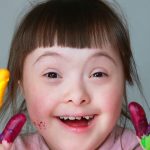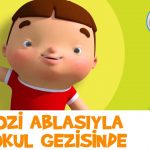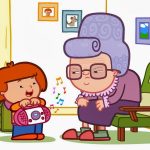
The article in which Near East University Faculty Members examined the reflections of children with down syndrome on cartoons was published in the International European Journal of Educational Research.
Near East University Faculty Members Assoc. Prof. Dr. Mustafa Yeniasır, Assoc. Prof. Burak Gökbulut and Dr. Özlem Dağlı Gökbulut's article titled "Reflection of Children with Down Syndrome on Cartoons: Samples of My Brother Ozi and Punky" was published in the European Journal of Educational Research, which is scanned by international indexes such as SCOPUS, ERICH and EBSCO.
Assoc. Prof. Dr. Mustafa Yeniasır, Assoc. Prof. Dr. Burak Gökbulut and Dr. Özlem Dağlı Gökbulut analyzed the cartoons named "My Brother Ozi" and "Punky", which are based on the life of a 5-6 year old child with Down Syndrome. It is stated that children with Down Syndrome, who are the main characters in both cartoons, are represented as happy individuals who are loved by their families. The article puts forward that "The main characters in these cartoons play games with their siblings, watch television, go for a tour, do activities, and this situation is a good example in terms of behavior patterns for normally developing children who have special needs siblings."
Although cultural differences are reflected in cartoons, love stands out as the common denominator
Comparing the two productions examined in the article, faculty members say that cultural differences are also reflected in cartoons. While Ozi's family exhibits a "foster parenting style" in relation to the classical Turkish family structure, Punky is determined to act with a "democratic parenting style" based on a foreign culture.
In the study where it was determined that the cartoons published reflect the different family structures and local culture in their own countries, “Although there are differences in both family types, it is seen that the children with Down Syndrome, who are the main characters, are accepted by their families and their families act with care and patience towards them. Based on this result, it is emphasized that the parenting attitudes of families in cartoons create role models for families with children with special needs and show how to approach their children.”
Awareness is raised in children that they may have friends with special needs
Assoc. Prof. Dr. Mustafa Yeniasır, Assoc. Prof. Burak Gökbulut and Dr. Özlem Dağlı Gökbulut in their joint statement said that the main characters in both cartoons attend schools where their normally developing peers and siblings also attend inclusive education. Near East University Faculty Members said, “Reflecting the inclusive education environments in cartoons, which are considered as modern educational environments in the education of students with special needs, is extremely important in terms of creating an effective awareness in preparing the age group targeted by the cartoon for the fact that they may have friends with special needs in their classes.
In the study, which stated that such cartoons, children's movies and children's programs are extremely important for the representation of individuals with special needs and for the target age group to gain awareness such as empathy, social acceptance and identification, it is emphasized that increasing such productions is vital for children with special needs.


